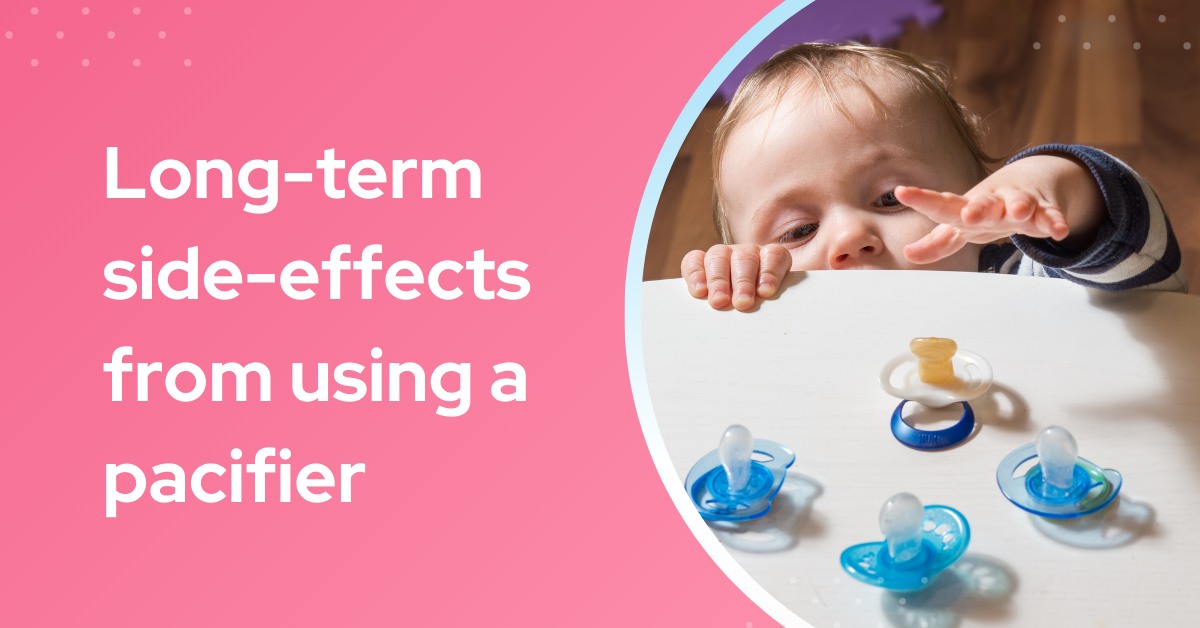Pacifiers and thumb sucking are both common ways for babies to self-soothe. While they provide comfort and security in the early years, prolonged use of either can lead to dental problems and other complications down the line.
Best Practices
- Age is Key: The American Academy of Pediatric Dentistry (AAPD) recommends discontinuing pacifier use by age 1 and thumb sucking by age 4 though some professionals would agrue elimination should be as early as 6 months of age. (TA)
- Limit Use: If your child is still using a pacifier or sucking their thumb past the recommended ages, try to limit the frequency and duration of the habit. Offer the pacifier only at naptime or bedtime, and gently redirect your child's thumb when you notice them sucking.
- Positive Reinforcement: Focus on praising your child for times they are not sucking their thumb or using a pacifier. Reward them with positive attention or a small age-appropriate reward for not using them.
- Address Underlying Issues: Sometimes thumb sucking or pacifier use can be a sign of anxiety or boredom. If you suspect this is the case, try to address the underlying issue. Provide your child with more comfort and attention, or find alternative coping mechanisms like cuddling a stuffed animal or listening to calming music.
Side Effects of Prolonged Pacifier Use and Thumb Sucking
- Dental Problems: The most common concern is misaligned teeth. Constant sucking can push the front teeth outward and the lower teeth inward, creating an overbite or open bite. It can also affect the roof of the mouth (palate) narrowing it and causing speech problems.
- Ear Infections: Studies have shown a possible link between prolonged pacifier use and increased ear infections.
- Speech Development: In some cases, persistent thumb sucking can interfere with proper tongue placement and speech development.
How Spot Pal Can Help
- Habit Elimination: Spot Pal's gentle pressure and biofeedback can help break unwanted oral habits like thumb-sucking or finger sucking.
- Myofunctional Therapy: By retraining tongue posture, Spot Pal can support myofunctional therapy, which aims to improve facial muscle function and oral habits. This can benefit individuals with issues like teeth grinding or improper swallowing.
- Improved Tongue Posture: Trains the tongue to rest in the correct position on the palate. This can address issues like tongue thrusting, which can contribute to misaligned teeth and jaw problems.
- Speech Therapy Aid: Speech therapists can use Spot Pal to help patients with articulation difficulties by providing tactile cues for proper tongue placement during speech exercises.
Important to Note
Spot Pal is a tool to be used in conjunction with other strategies like positive reinforcement and addressing underlying causes. It is not a magic bullet, and parental guidance and support are still essential.
Conclusion
Pacifiers and thumb sucking can be a source of comfort for young children. However, prolonged use can lead to dental and other complications. By following best practices and using tools like Spot Pal, you can gently guide your child towards breaking the habit and ensure a healthy smile for the future.
If you're looking for a gentle and effective way to help your child break the thumb-sucking habit, visit Spot Pal to learn more about how our device can help.

Share:
Causes and Concerns of a Tongue Thrust
Does Your Child's Sleep Affect Their Focus?